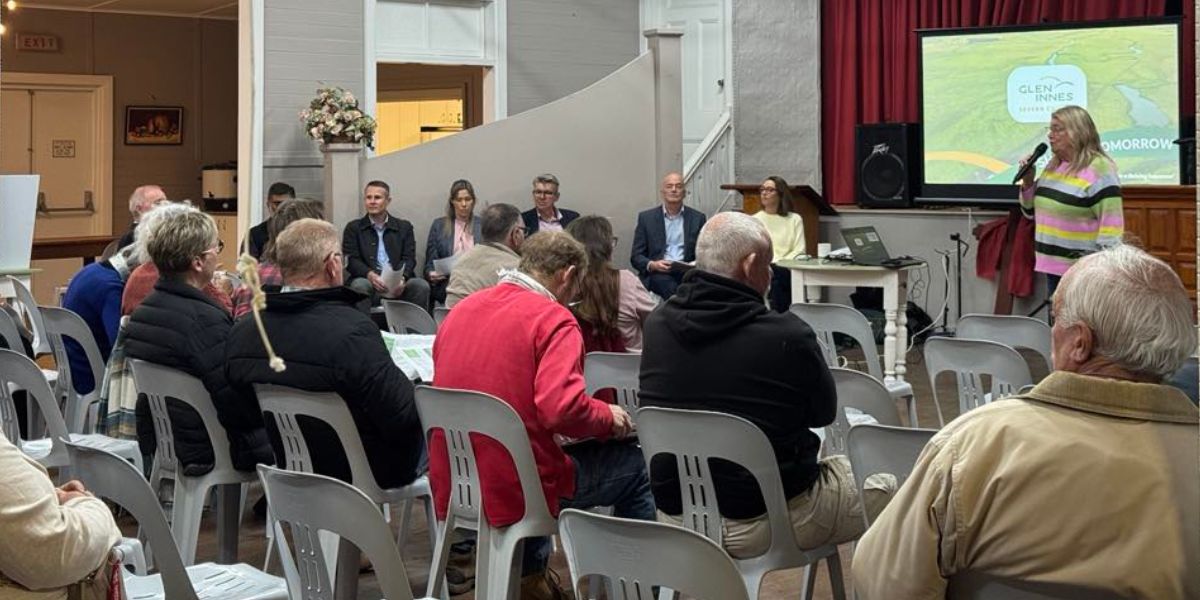Glen Innes Severn Council will this week discuss the outcomes of its recent extensive community engagement program– concerning a new Community Strategic Plan (CSP), Delivery Program (DP), Operational Plan and Budget (OP) and the Revised Long-Term Financial Plan (LTFP).
While all these documents are crucial, the community’s primary focus has been on the scenarios proposed for a Special Rate Variation (SRV). Glen Innes Severn Council, like many Councils in our region, has been operating at a loss for some time, with cut backs and axing of services not bridging the gap. According to Council’s business papers, GISC will run at a deficit of around $6.1m per year without raising revenue through a rates increase or other measures.
A lower increase over a longer time
Council says that following valuable community feedback and a thorough review of submissions, further remodelling of the Revised LTFP 2025–2035 has been undertaken. The business paper for the June 2025 Ordinary Council Meeting, released today, recommends to Council an amended Sustainability scenario which incorporates an SRV of 48.3 per cent over three years.
The recommended scenario has been revised from the original model to involve smaller rate increases over three years, culminating in the 2028/29 fiscal year, with the target year for achieving financial sustainability now set for 2029/30 – one year later than previously anticipated.
“This recommendation to Council achieves the requirement of financial sustainability, reflects the concerns of the community, but still enables the region to grow and be a desirable and liveable community.” said General Manager, Bernard Smith.
“The community has told us that the maintenance of infrastructure and the delivery of services is important, and this proposal enables Council to meet that expectation,” he said.
“Council remains committed to ensuring that the region continues to thrive while addressing the needs and concerns of its residents.”
Other proposed amendments to the Revised LTFP 2025-2034 include:
- Greater savings from improving organisational efficiency
- Acknowledging pensioners with an increase in the pensioner rebate of $50
- Retaining a commitment to towns and villages improvements
- Deferral of Town Hall master planning
- A reduction in depreciation following a technical review
Additionally, waste charges have been reviewed, resulting in planned increases being significantly reduced.
The business paper also incorporates a Capacity to Pay report which has been prepared as background information for Councillors. The report does not make commentary on specific SRV scenarios but provides an analysis of a wide range of socio-economic and other data, and evaluates the general financial capacity of ratepayers to pay the proposed rate changes. Glen Innes has, as is often the case in smaller and older communities, a significant number of residents for whom the rates bill causes significant hardship, and all councils are required to have support measures to assist those people.
Community pays a high social price
Unfortunately, the important public debate about Council’s financial position and the unavoidable need to raise rates has been dominated by misinformation and personal animosity. Some have been distributing flyers and telling people that the rate rise was decided on at 68%, that the increase was to fund unnecessary luxuries or just wasteful spending, and distributing flyers urging them to write and make submissions to IPART. Many have been swept up in this misinformation, with even well meaning community groups dupes, such as the Glen Innes Highland Writers who voted to assist people in writing their submissions to IPART.
IPART is the regulator that approves rate rises in NSW. The opportunity to make comment to IPART will not occur until early 2026, and only if Council goes ahead with the SRV, which they have not yet voted to do. Council has as yet not made an application to IPART for anyone to comment on it, and submissions must directly address both the application and the criteria for an SRV to be considered by the regulator.
This misinformation campaign, and associated toxicity affecting the Glen Innes community, prompted Mayor Margot Davis to write an impassioned open letter to Prime Minister Anthony Albanese to restore Federal Assistance Grants to local councils and avoid the devastating damage the SRV debate does to small communities.
“Across the state, councils are being forced to consider Special Rate Variations (SRVs)—some in excess of 100%— not by choice, but by necessity. These decisions are never taken lightly,” she wrote in her letter.
“When we are required by law to consult our communities about rate increases, we are met not just with concern—but with fear, anxiety, anger, and in some cases, hostility and hatred.”
“The SRV process is broken—damaging the relationships between councils and their communities and leaving lasting harm and distrust in the level of government that is closest to the people.”
The June 2025 Ordinary Council meeting will commence at 9am on Thursday, 19 June and be held in the William Gardner Conference Room at the Glen Innes Severn Learning Centre.
The business paper with attachments are available on Council’s website at: https://www.gisc.nsw.gov.au/Council/Council-Meetings
Don’t miss any of the important stories from around the region. Subscribe to our email list.

